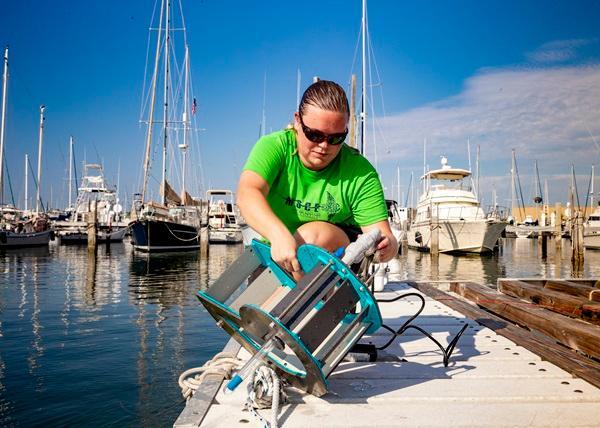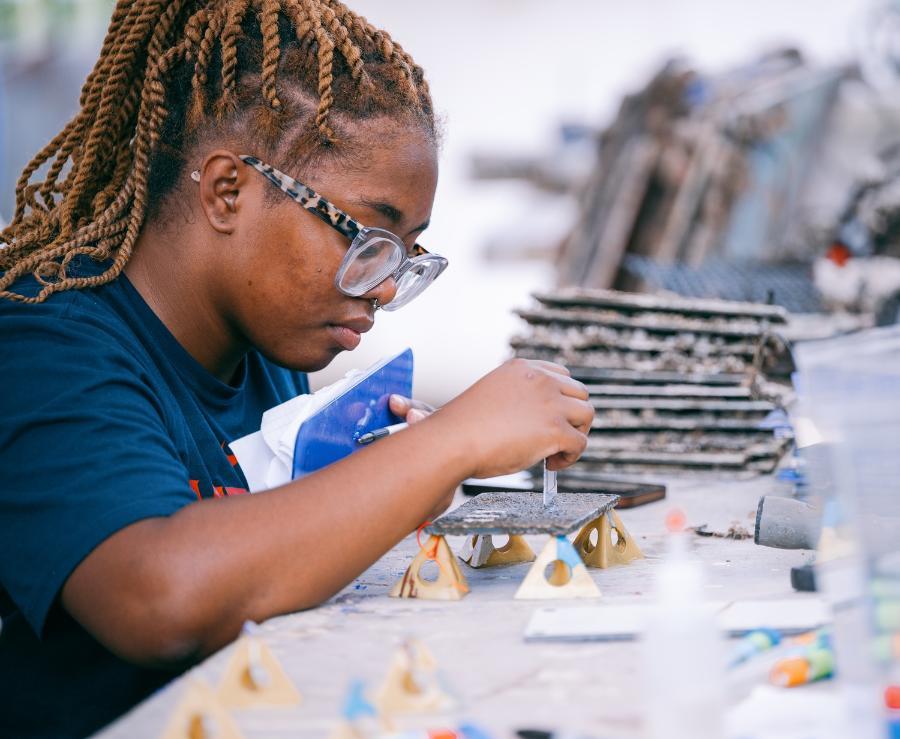Immerse Yourself in Research
At Florida Tech, research is integral to every major, giving undergraduates access to opportunities typically reserved for graduate students elsewhere. Students engage in advanced research like lab analysis, field studies and simulations.
Field research opportunities span the biodiverse Indian River Lagoon, the Atlantic Ocean and summer field courses in locations such as the Pacific Northwest and the Galapagos Islands.
Undergraduate oceanography research culminates in a marine field capstone, allowing students to tailor projects to their interests and goals across various topics, such as:
- Human impact on water quality
- Survival of species in sensitive marine environments
- Loss of seagrass beds
- Harmful algal blooms
- Beach erosion
Students present their research to peers, faculty and community and industry leaders at the Student Design Showcase, held on campus each spring.

 Give to Florida Tech
Give to Florida Tech 



